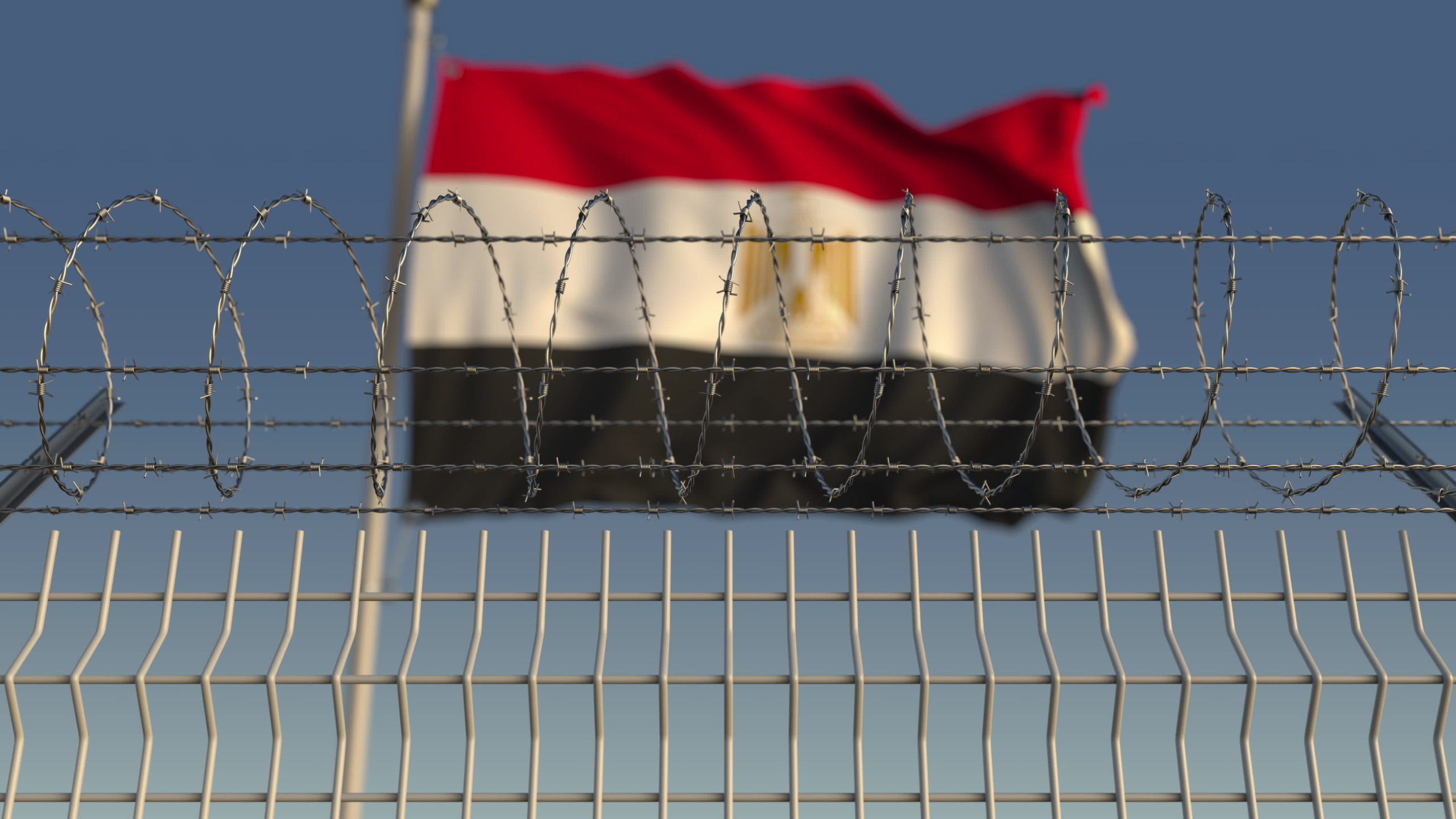The International Commission of Jurists (ICJ) calls on the Egyptian authorities to immediately quash the convictions of torture victims who were convicted of “terrorism-related” charges and sentenced to terms of imprisonment ranging from five years to life as punishment for exposing their ordeal and their torturers.
يمكنكم قراءة وتحميل البيان باللغة العربية عبر هذا الرابط
“Despite the world’s attention still on Egypt in the aftermath of the Sharm el-Sheikh Climate Change Conference, for the umpteenth time, the Egyptian authorities have chosen to send the same loud, clear and unmistakable message to the world: impunity will remain the norm in torture cases, and the justice system will continue to be used as a tool of repression,” said Said Benarbia, ICJ MENA director.
In November 2021, a detainee in the First Salam Police Station covertly recorded a video showing two inmates hung in stress positions and suspended from a metal grate by their arms, which were tied behind their backs. The UK-based newspaper, The Guardian, obtained and circulated the same video on 22 January 2022, and reported on a second video, which was not released to protect the identity of those featured, but which is said to show detainees talking to the camera and displaying injuries to their bodies, including large bruises and head wounds that they said were inflicted by police officers and investigators. Upon reviewing the second video, Amr Magdi of Human Rights Watch said, “they all show signs of severe beatings, and they mention batons and wooden sticks which are routine torture tools.”
Instead of conducting a prompt, independent and effective investigation into these allegations and holding the perpetrators accountable, the Egyptian authorities subjected the victims to an unfair and sham trial.
On 15 February 2022, the Office of the Prosecutor General issued a statement claiming that the police had conducted an investigation into the torture allegations and concluded that the injuries shown in the videos were self-inflicted, and that the inmates had recorded the footage in order to destabilize the country.
Egypt’s Supreme State Security Prosecution charged the detainees who appeared in the videos, who had initially been arrested in connection with offences of a non-political nature, as well as four other individuals who were arrested for circulating the videos, accusing them of being complicit and of providing the phone used to record and upload the footage, with ‘joining a terrorist group’, ‘financing that group’ and ‘spreading false news’ in case No. 95/2021 (Case No. 8846/2022).
On 17 November 2022, the Terrorism Criminal Court convicted the defendants of the charges and sentenced nine of them to life imprisonment, thirteen of them to 15 years’ imprisonment and Tamer Khalid Abdulaziz, who was 17 years old when charged, to five years’ imprisonment. Furthermore, the Court ordered that their names be added to “a terrorist list”, and ruled that, on release, following completion of their sentence, they be placed under police surveillance for five years.
“The sham trial was carried out as a form of reprisal against these people because the videos exposed the police as torturers. The convictions and sentences are an outrageous travesty of justice and must be immediately quashed”, added Benarbia.
The ICJ is also concerned that the purported investigation into the torture allegations was conducted by the police, the same entity accused of having tortured the detainees in the first place. As such, the investigation failed to meet Egypt’s obligations under international human rights law and standards, which, in the circumstances, would have required an independent, impartial and effective investigation into the abuse allegations.
Torture is a widespread and systematic practice in Egypt; the authorities resort to it to obtain confessions, punish or threaten those suspected of political opposition, and to spread fear. Although Egypt’s Constitution and Penal Code prohibit certain elements of torture and other ill-treatment, and require that detainees be held in official places of detention under judicial oversight, torture remains the norm in detention facilities.
The United Nations Committee Against Torture has previously documented how torture in Egypt “appears to occur particularly frequently following arbitrary arrests and is often carried out to obtain a confession or to punish and threaten political dissenters. Torture occurs in police stations, prisons, State security facilities, and Central Security Forces facilities.”
The ICJ has also documented how perpetrators of torture in Egypt enjoy complete impunity.





